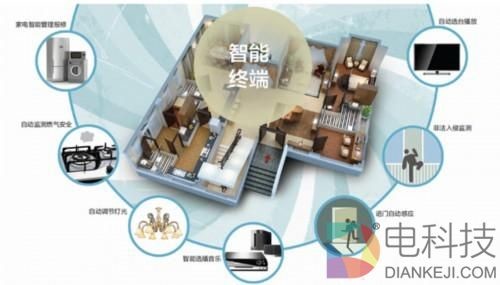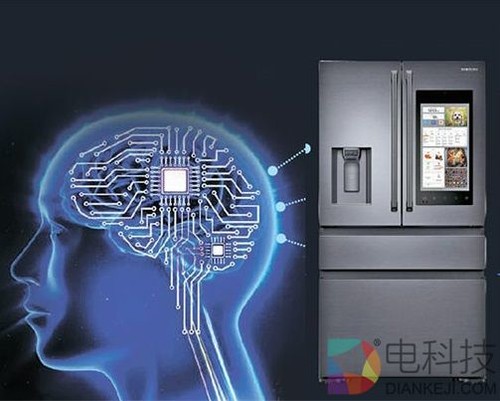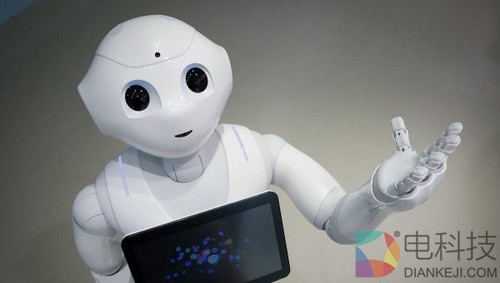OFweek smart home network intelligence Artificial intelligence-related technologies, including big data, machine learning and other aspects, and the continuous breakthrough of the algorithm to make the convergence of technology and other industries is also increasingly perfect. Appliances embedded with smart technologies are now becoming a market trend. For the current intelligent transformation and upgrading of home appliances, relying on the user's life scene and business scenarios to create artificial intelligence solutions for home appliances, major business leaders are increasingly Recognize the importance of new technologies such as artificial intelligence and the Internet of Things.

Restricted function of product features Relying on intelligent technology White market breaks new life
White goods have long been regarded as a mature market under price competition. New home appliance manufacturers use low-cost to seize the market, traditional manufacturers can only follow up, while the market has matured in various types of home appliances function has long been fixed, and technological progress can bring Home appliance evolution is nothing more than a performance improvement. However, the birth of such technologies as new Internet of Things (IoT) and artificial intelligence has enabled the white-market market to gain more opportunities for breakthroughs in the limited changes.
According to the CNBC Global CFO Investigation Committee, more than 26% of CFOs believe that artificial intelligence and machine learning are critical to their company, and nearly 44% said it is very worthwhile. For the white market, to break this restriction, it is first and foremost to create new uses for home appliances. However, artificial intelligence is not a universal solution for many smart home appliances, and it is not applicable to any industry and field. It is necessary to create differentiating artificial intelligence solutions for different scenarios and different home appliance functions.
The Internet of Things has become the new engine of the future economy. Under the prospect of huge market development, the Internet of Things industry alliances in various regions of China has risen rapidly and achieved rapid growth and value. Taking Jiangsu as an example, the 2015 Jiangsu Internet of Things realized a business income of 360.7 billion yuan, and maintained a high growth rate of more than 30% a year.
At the beginning of the Internet of Things technology, the new white goods that people can imagine at the time were connected home appliances in smart homes, such as installing displays on refrigerators or bringing AIs to refrigerators to provide users with related consultations and even health. Recipes, but unfortunately due to the lack of suitable match killer applications, this kind of product market response is not good.

Get rid of the market, you need to first break the artificial intelligence cross-border barrier
Although there are vacuum cleaners equipped with AI avatar sweeping robots, and then pioneering a precedent for new markets, but in fact, the white goods market wants to get rid of flaws, and can not use existing Internet appliances to install Internet of things or AI applications to achieve value innovation. In contrast, the automatic folding machine launched by Japan's new venture 7 Dreamers Laboratories and Panasonic has created a new market by breaking the existing white goods market.
Daiwa House Industry went a step further by letting automatic clothes-puckers through the Internet of Things, linking home databases, and further identifying and classifying personal clothing. It is expected that clothing-related services will be provided, such as automatic online clothing reservations. Provide a size to reduce the problem of unsuitable returns.
In short, the existing market needs new concepts, new concepts of Internet of Things and AI technology are used to implement concepts, but creating new concepts is another challenge for many home appliance manufacturers. Today, artificial intelligence has penetrated into every aspect of people's daily life. Smart home appliances through the data collection, voice recognition and other software functions, and then the algorithm analysis results are passed to the hardware, and feedback people's actual needs. Unlike traditional microcomputer home appliances, smart home appliances are machines that learn to think and change passive responses into active ones. However, due to the mechanization and linearization of existing products, the level of intelligent thinking is very simple.
However, as robot learning capabilities continue to deepen in the next 10 years, the results of artificial intelligence will be more accurate and user-friendly, but such applications are still preferred in the commercial market. In this short time, home appliance companies want to rely on artificial intelligence to incite the mass consumer market or will encounter embarrassment.
At the end of March this year, Softbank Robot Holdings, a subsidiary of Japan's Softbank Group that developed and marketed Pepper, was insolvent. According to reports, due to the low profit rate of humanoid robots, it is difficult to offset R&D expenses and the company has sustained losses. Although no results were announced, according to Tokyo Shoko Research, the company reported revenue of 2.2 billion yen in fiscal year 2015 and a net loss of 11.7 billion yen (approximately RMB 700 million).
Pepper used to be a "grandchild of heaven." With 1,000 units per month, it was robbed of light in less than one minute. Ma Yun, Sun Zhengyi, and Guo Taiming, all the richest men and women of the country had their platforms. But then because of the single function, the selling point is insufficient. Soon from smart commercial products to big tasteless toys.

At present, most artificial intelligence can only help people solve some of the technical problems, but to replace human thinking, even to become another human brain is a long way to go. The development of artificial intelligence consumer electronics may take the function as the main force, and the user interaction will exist in the form of a lace function, and it will be continuously upgraded from the function for the purpose of bringing about experience fun. Obviously, if you want to rely on artificial intelligence to solve the pain points of users, it will take a long time to accumulate and precipitate.
Lithium iron batteries have revolutionized the solar street lighting industry, providing a reliable source of energy that is environmentally friendly and cost-effective. These batteries are rechargeable and designed to efficiently store and release energy, making them an ideal solution for powering solar LED street lights. Compared to traditional lead-acid batteries, lithium batteries have a longer lifespan and are much lighter in weight. This makes them a great choice for solar street lights, where weight and space are often at a premium. Additionally, lithium batteries can operate in extreme temperatures, from -20°C to 60°C, making them suitable for all kinds of environments.
Rechargeable Batteries For Solar Lights,Replacement batteries for solar lights,Solar street light batteries,LiFePO4 Solar Batteries
JIANGMEN RONDA LITHIUM BATTERY CO., LTD. , https://www.ronda-battery.com